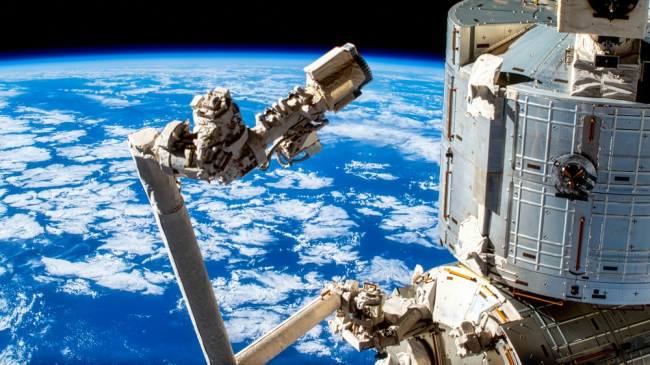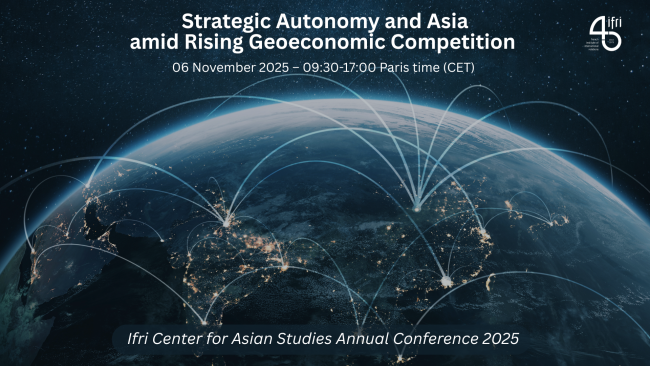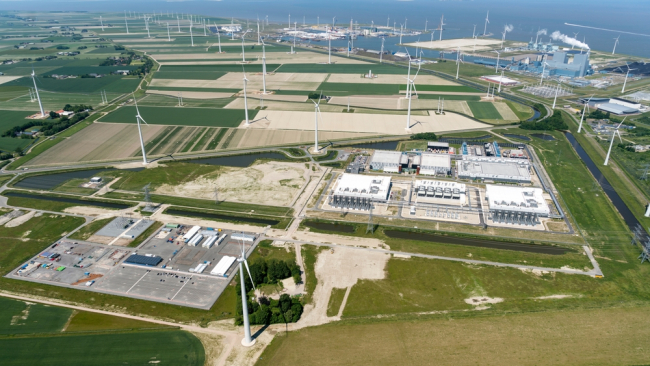
Practical information
Accessibility
Themes and regions
Related centers and programs
This is a private event.
Learn more about our corporate support packages
2025 is already characterized by the accelerated erosion of the West and global fragmentation on energy and climate policies, security, trade and governance. Ten years after the Paris Agreement, greenhouse gas emissions continue to rise and the United States is once more preparing to exit the global climate governance, while coal has again passed another consumption record in 2024. Yet annual clean sector investments are finally nearing the 2 trillion $ mark, notably driven by energy security and industrial policies.
In this highly volatile and uncertain context, Ifri is gathering four leading energy economists from four leading energy companies representing a combined 670 billion EUR revenues in 2024 alongside a member of the Executive Committee of Europe’s largest infrastructure fund to discuss the consequences of the various shocks and clashes affecting energy markets, trade, services, and transatlantic relations.
Amidst these uncertainties, what is actually a given, and what are the implications for energy sector investment and policies?
Program:
8:30-9:00: Welcome coffee & breakfast
9:00-9:10: Introduction - The energy transitions torn between war and energy security.
- Marc-Antoine Eyl-Mazzega, Director, Center for Energy and Climate, Ifri
9:10-10:15: The chief economists roundtable
- Laszlo Varro, Vice President Strategy, Insights & Scenarios, Shell
- Marion Calcine, Chief Investment Officer, Infrastructure, Ardian
- Pierre-Laurent Lucille, Chief Economist, Engie
- Thomas-Olivier Léautier, Chief Economist, TotalEnergies
- Charles Weymuller, Chief Economist, EDF
10:15-11:15: Discussion
Please note that the event is by invitation only and will be held in English without translation.
Our partners
Speakers
Find out more
The Strategic Dimension of Power System Flexibility: Opportunities in Europe
The European Union has embarked on an energy transition aimed primarily at replacing fossil fuels by electrifying demand.
Related Subjects
Other events

The Future of Space Cooperation: Challenges and Opportunities in the Trump II Era
The policy orientations of the Trump II administration profoundly challenge the foundations of international cooperation in space science and exploration. This shift reflects a broader trend of strategic disengagement and weakening of multilateral mechanisms in the space domain.

Strategic Autonomy and Asia amid Rising Geoeconomic Competition
Amid growing strategic and geopolitical uncertainty, Europe is grappling with the notion of its strategic autonomy. For Europe’s partners in Asia, the concept is also becoming increasingly salient as the world enters an era of structural transformation.
The New Nuclear Instabilities on the Korean Peninsula
From the growing size and diversification of the North Korean nuclear arsenal, and an open rhetoric in favor of nuclear proliferation in the South because of the loss of credibility of U.S. extended deterrence, the Peninsula is facing raising nuclear tensions.







